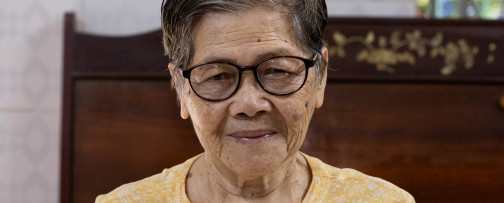Writing a eulogy can be a daunting task, as it requires expressing heartfelt emotions while capturing the essence of a loved one's life. However, with careful planning and thoughtful consideration, you can create a memorable tribute that honors the deceased and provides comfort to those who are mourning. In this article, we will explore seven tips to help you craft a meaningful and impactful eulogy.
Understanding the Purpose of a Eulogy
Before diving into the writing process, it's essential to understand the purpose of a eulogy. A eulogy serves as a tribute to the deceased, celebrating their life and sharing stories and memories with others. It provides an opportunity to honor their accomplishments, character traits, and the impact they had on the lives of those around them.
When we gather to remember a loved one who has passed away, it is a time of mixed emotions. Sadness and grief may be overwhelming, but a eulogy helps to bring solace and comfort to those who are mourning. It is a chance to reflect on the life that was lived, to remember the joy and happiness that the person brought into the world.
Through the words spoken in a eulogy, we can find healing and closure. It allows us to come together as a community, supporting one another in our grief. The eulogy becomes a bridge between the past and the present, reminding us of the impact that our loved one had on our lives and the legacy they leave behind.
The Role of a Eulogy in Mourning
A eulogy plays a vital role in the mourning process. It offers comfort and healing to grieving individuals by allowing them to remember and reflect on their loved one's life. It also helps bring closure to the mourning process and can serve as a source of strength and inspiration for those in attendance.
During a funeral or memorial service, the eulogy becomes a focal point. It is a moment where the person's life is celebrated, where their spirit is honored. Through heartfelt words and personal stories, the eulogy helps us to find meaning in our loss and to navigate the complex emotions that come with grief.
As we listen to a eulogy, we are reminded of the impact that our loved one had on the world. We hear stories of their kindness, their generosity, and their love. We are reminded of the laughter they brought into our lives, the wisdom they shared, and the memories we will forever hold dear.
Celebrating Life Through Words
When writing a eulogy, it's crucial to focus on celebrating the life of the deceased rather than dwelling on their passing. Share anecdotes, accomplishments, and memorable moments that highlight their unique qualities and contributions. By doing so, you will create a eulogy that not only pays tribute to their life but also brings comfort and solace to those in attendance.
Remember that a eulogy is not just a recitation of facts and dates. It is an opportunity to paint a vivid picture of the person's life, to capture their essence and spirit. Share stories that showcase their passions, their quirks, and the impact they had on others. Let your words be a testament to the love and admiration you have for the person you are eulogizing.
Through the power of storytelling, a eulogy allows us to keep the memory of our loved one alive. It helps us to honor their life and to find comfort in the knowledge that their legacy will continue to inspire and touch the lives of others. In sharing their story, we find healing and strength, knowing that their spirit will forever be with us.
Starting Your Eulogy: Where to Begin
Getting started can often be the most challenging part of writing a eulogy. To overcome this hurdle, begin by taking the time to gather your thoughts and memories of the deceased.
When reflecting on your personal experiences, interactions, and shared moments with the deceased, it is important to delve deep into the emotions and significance of these memories. Think about the impact the person had on your life and the lives of others. Consider the lessons they taught you, the laughter they brought, and the love they shared. These reflections will help you create a heartfelt and meaningful eulogy that truly captures the essence of the person you are honoring.
Engaging with family members, friends, and loved ones can also provide valuable insights and stories that you may have forgotten or were not aware of. Reach out to those who were close to the deceased and ask them to share their own memories and anecdotes. These additional perspectives will enrich your eulogy, offering a more comprehensive and well-rounded portrayal of the person's life.
Gathering Thoughts and Memories
Reflecting on memories is not only about recalling specific events, but also about exploring the emotions and connections associated with those moments. Remember the laughter shared during family gatherings, the tears shed during difficult times, and the joy experienced in celebrating milestones together. These emotional elements will add depth and authenticity to your eulogy, allowing others to truly feel the impact of the person's presence in their lives.
As you gather your thoughts and memories, consider the unique qualities and characteristics that defined the deceased. Were they known for their kindness, their sense of humor, or their unwavering determination? Reflect on these traits and think about how they influenced the lives of those around them. By highlighting these qualities in your eulogy, you will not only honor the person's memory, but also inspire others to embody these virtues in their own lives.
Structuring Your Initial Draft
Once you have gathered your thoughts and memories, it's time to form an initial draft. Consider organizing your eulogy into sections that cover different aspects of the deceased's life, such as early life, career, hobbies, and relationships. This structure will help you present a cohesive and engaging eulogy.
When structuring your eulogy, think about the significance of each aspect of the person's life. How did their early life experiences shape them into the person they became? What were their passions and accomplishments in their career? How did their hobbies bring them joy and fulfillment? And most importantly, how did their relationships with family and friends define them?
By addressing each of these aspects in your eulogy, you will paint a vivid picture of the person's life, allowing others to truly understand and appreciate the impact they had on the world. Remember to include specific anecdotes and stories that highlight the person's unique qualities and experiences. These personal touches will make your eulogy more relatable and memorable.
The Importance of Personalization
One of the key elements of a memorable eulogy is personalization. By incorporating personal stories and anecdotes, you can create a heartfelt tribute that resonates with the audience.
Personalization goes beyond simply listing the deceased's accomplishments and qualities. It delves into the essence of who they were as a person, their unique experiences, and the impact they had on others.
When crafting a eulogy, it is important to take the time to gather stories and memories from family, friends, and colleagues. These personal accounts provide a rich tapestry of the deceased's life, allowing you to paint a vivid picture that truly captures their essence.
Incorporating Personal Stories
Share stories that showcase the unique qualities and experiences of the deceased. Highlight their achievements, values, and strengths. Personal anecdotes that evoke laughter or stir emotions can create a lasting impact on those in attendance.
For example, you might share a story about how the deceased always went out of their way to help others, whether it was lending a listening ear or offering a helping hand. This story not only demonstrates their kindness but also invites the audience to reflect on their own interactions with the deceased.
Another approach could be to recount a humorous incident that showcases the deceased's sense of humor. Laughter has a way of bringing people together, and sharing a lighthearted moment can help alleviate some of the sadness and create a more uplifting atmosphere.
Reflecting the Deceased's Personality
When writing a eulogy, be sure to capture the essence of the deceased's personality. Whether they were known for their sense of humor, kindness, or perseverance, it's essential to reflect these traits in your speech. This personal touch will make the eulogy more relatable and memorable.
Consider sharing specific examples that highlight these qualities. If the deceased was known for their unwavering determination, you could share a story about how they overcame a significant challenge in their life. This not only showcases their perseverance but also serves as a source of inspiration for those listening.
Remember, personalization is not about embellishing or sugarcoating the deceased's life. It's about presenting an authentic and honest portrayal that honors their memory. By sharing personal stories and reflecting their unique personality, you can create a eulogy that truly celebrates their life and leaves a lasting impact on all who hear it.
Balancing Emotion and Humor
Emotions run high at a funeral or memorial service, and striking the right balance between heartfelt moments and light-heartedness can be challenging. However, with careful consideration, you can navigate this delicate balance effectively.
Funerals and memorial services are occasions filled with deep emotions. They provide an opportunity for family and friends to come together to mourn the loss of a loved one and celebrate their life. It is a time when tears flow freely, and hearts ache with grief. But amidst the sorrow, there is also room for laughter and joy, as we remember the happy moments and celebrate the unique spirit of the person we have lost.
Navigating Emotional Content
When addressing emotional content, it's essential to be genuine and allow yourself to feel the emotions. Share heartfelt stories and personal connections, but also emphasize the importance of celebrating the life lived and finding solace in shared memories.
As you stand before the gathering, take a moment to reflect on the impact the departed soul had on your life and the lives of others. Let the memories flood your mind and heart, and let the emotions flow naturally. Share those stories that capture the essence of who they were - their kindness, their strength, their love. Paint a vivid picture with your words, allowing everyone present to feel the warmth of their presence once again.
Remember, it is in these moments of vulnerability that true connections are formed. As you share your own experiences and emotions, you invite others to do the same. Encourage those in attendance to share their own stories and memories, creating a space for collective healing and support.
The Role of Humor in Eulogies
Humor can play a valuable role in a eulogy by lightening the atmosphere and celebrating the joyous moments of the deceased's life. Incorporate funny and lighthearted anecdotes that showcase their sense of humor and bring smiles to the faces of those attending the service. However, exercise sensitivity and ensure the humor aligns with the overall tone and theme of the eulogy.
Laughter has a way of easing tension and breaking down barriers. It allows us to momentarily escape the weight of grief and find solace in the shared laughter of those around us. When weaving humor into your eulogy, choose stories that reflect the person's unique wit and charm. Share those moments that brought laughter to their life and the lives of others. Remember, humor can be a powerful tool for healing, but it should never overshadow the genuine emotions and reverence that the occasion demands.
Strike a balance between the serious and the lighthearted, allowing the eulogy to be a reflection of the complex and beautiful tapestry of life. Acknowledge the pain of loss, but also celebrate the joy and love that the departed soul brought into the world. By navigating the emotional content with authenticity and incorporating appropriate humor, you can create a eulogy that honors the memory of your loved one and provides comfort to all those who gather to say goodbye.
Practical Tips for Writing
When writing a eulogy, it's important to keep certain practical tips in mind. These tips will not only help you create a well-structured and impactful eulogy but also ensure the speech is delivered effectively.
Writing a eulogy is a deeply personal and emotional task. It is a way to honor and remember a loved one who has passed away. By following these practical tips, you can create a eulogy that truly captures the essence of the person and celebrates their life.
Keeping the Eulogy Concise
Avoid rambling or overwhelming the audience with excessive details. Keep your eulogy concise, focusing on the most significant aspects of the deceased's life. Aim for a speech that is around five to ten minutes in length, allowing ample time for reflection and contemplation.
When crafting your eulogy, it can be tempting to include every little detail about the person's life. However, it's important to remember that the purpose of a eulogy is not to provide a comprehensive biography, but rather to highlight the most meaningful moments and qualities of the individual.
Consider focusing on specific anecdotes or memories that truly capture the essence of the person. By selecting a few key stories or qualities, you can create a eulogy that is both impactful and concise.
Using Simple and Clear Language
When writing a eulogy, it's important to use simple and clear language that everyone can understand. Avoid jargon or complex terminology that may alienate members of the audience. Aim for a speech that is accessible and relatable to individuals from various backgrounds.
Remember that a eulogy is meant to be a heartfelt tribute, not an academic lecture. Use language that is warm, sincere, and easy to follow. Consider incorporating personal anecdotes or memories that showcase the unique qualities of the person.
By using simple and clear language, you can ensure that your eulogy resonates with everyone in the audience, regardless of their background or level of familiarity with the deceased.
Additionally, it's important to consider the emotional impact of your words. A eulogy is a chance to express your love, admiration, and gratitude for the person who has passed away. Use language that conveys your emotions and allows others to connect with your feelings.
Delivering the Eulogy
Writing the eulogy is only part of the process; delivering it effectively is equally important. Taking the time to prepare and practice your speech will ensure a smooth and impactful delivery.
Practicing Your Speech
Rehearse your eulogy several times before the actual service. Practice in front of a mirror or with a trusted friend or family member. Pay attention to your tone, pace, and body language, ensuring that your delivery conveys the intended emotions and messages.
Handling Emotions While Speaking
During the delivery of your eulogy, it's natural to experience a range of emotions. It's essential to acknowledge and embrace these emotions while remaining composed and focused. Take brief pauses if needed to regain your composure and continue speaking from the heart.
Final Thoughts on Eulogy Writing
Writing a eulogy is a challenging but incredibly meaningful task. It provides an opportunity to honor and remember a loved one while offering comfort and support to others who are grieving. Remember, a memorable eulogy is one that celebrates life, incorporates personalization, balances emotions and humor, and is delivered with care and sincerity. By following these seven tips, you can create a eulogy that truly honors the memory of the deceased and provides solace to those in attendance.
The Healing Power of Eulogies
Eulogies have a unique ability to provide healing and closure during the mourning process. They offer a collective space for individuals to come together, share memories, and find solace in their shared grief. A well-crafted eulogy can serve as a catalyst for healing and help individuals navigate the complex emotions associated with loss.
Leaving a Lasting Impression
Lastly, remember that a eulogy is an opportunity to leave a lasting impression on those in attendance. Choose your words carefully and craft a eulogy that pays tribute to the deceased while offering comfort and support to others. By sharing meaningful stories, acknowledging emotions, and capturing the essence of the departed, your eulogy will be a cherished memory for everyone present.
Recommended Products
- Funeral Guest Book & Memory Card Set — Elegant guest book with matching memory cards for funeral and memorial services.
- COLIBROX Cremation Funnel Kit — Stainless steel funnel kit designed for carefully transferring ashes into urn jewelry and keepsakes.
- Mini Heart Urn — A small keepsake urn shaped like a heart for a portion of ashes


-banner.png)





